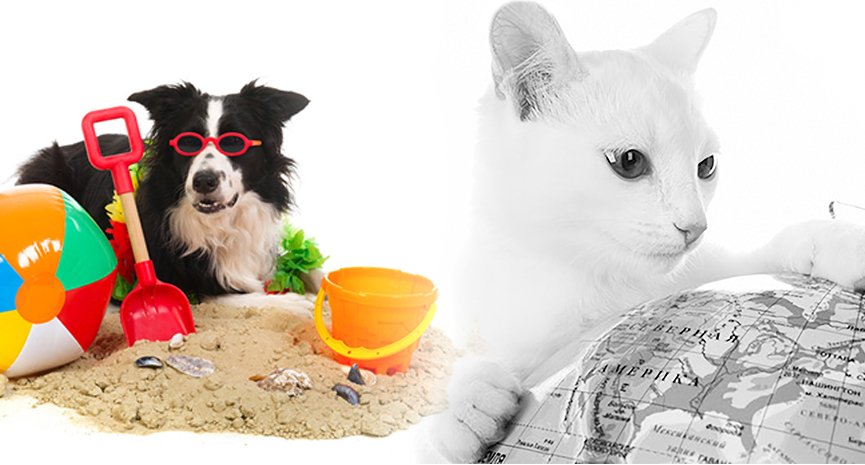Here is an example of a husband and wife that adopted two large, slobbery Labrador retrievers that everyone said would be the end of their carefree travel days. Each one of the dogs weighs 80 lbs, love to run around, and have more chew toys than your average teething infant.
Last summer, they brought them to Madrid on an extended stay. They flew on Iberia Air, stayed with them in an apartment, and got to know the locals very well (“Que Bonitas!” the locals would say). They learned to travel with pets, no matter how big they are. All it takes is a little planning, patience, and jumping through the right hoops. With a microchip and vet certificate (AKA Pet Passport), they were clear to travel with pets to many places in the world.
Tips to Travel with Pets
1. Plan ahead. Some countries like the UK require special tests 4 months before you arrive. The site Pet Travel lists the entry requirements by country. Even for Europe, all pets must be microchipped. The steps aren’t complicated, but waiting times can vary.
2. What’s in a breed? If you have a pug or other short-nosed breed, many airlines will not allow them due to increased difficulties they may have breathing on the plane.
3. Check or carry? Determine if you are going to check your pet as cargo or bring them on the flight with you. If you’re checking your dog, then you need the correct sized carrier.
4. Call ahead. Most airlines require you to call and make a reservation for your pet. You’ll also want to inquire about any temperature requirements because there are times when it’s just too hot or cold to fly with a pet in cargo.
5. Calculate the total cost. Sometimes, the cheapest flight at $2000 roundtrip can charge a whopping $1600 in added fees. (Total: $3200). But a more expensive flight at $2500 roundtrip only charged $200 per dog. (Total: $2700). Note: Go non-stop if you can.
6. Make sure Fido fits. When buying a pet carrier, bring the dogs with you into a local pet store and have them test out different sizes and options. Your pet should be able to stand up, turn around, and lay down comfortably. Note: The carrier label should say “Airline Approved”.
7. Forget sleeping pills. While you may want to pass out with some Ambien on the flight over, don’t do your pet the same favor. Any type of tranquilizer is discouraged, as it can make it difficult for your pet to breathe in the pressurized cabin.
8. Food and drink. Don’t forget to tape food and a water bowl to the top of your carrier if you are checking your pet into cargo. You’ll want to label these as such, in case you get separated from your dogs in an emergency and they need to feed the pet.
9. THIS SIDE UP. Be sure to label your carrier with lots of warnings and your contact information in case you get separated. Use big stickers with dogs’ names on each cage, so the people handling them can speak directly to an unsure pet.




